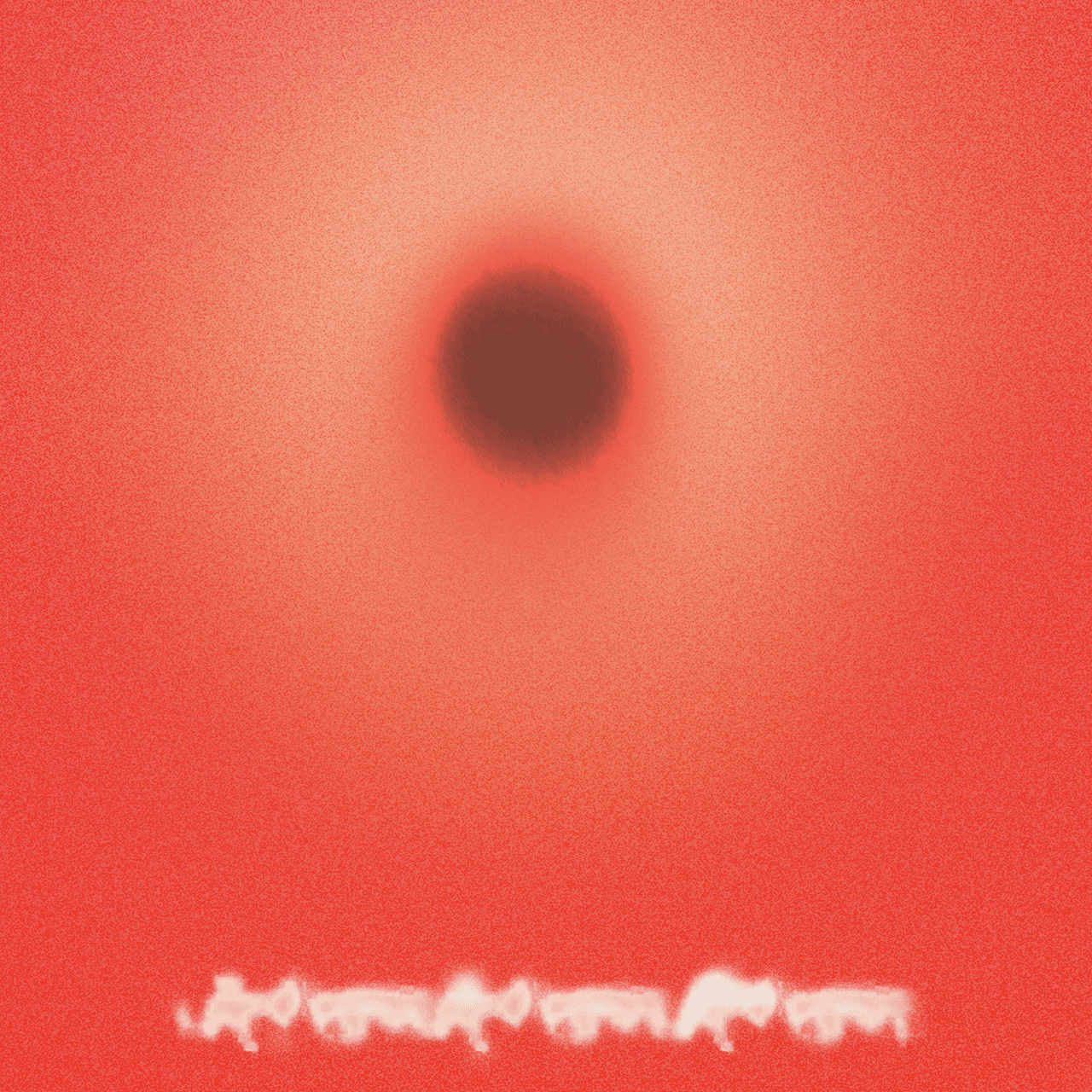There are four interesting things about rototoms, a specific type of drum that plays an outsized role on YHWH Nailgun’s debut album. They were invented out of necessity in the early 1960s by Al Payson, a concert percussionist with the Chicago Symphony Orchestra who needed a quick way to change the pitch of a drum for a new piece he was performing. Two is that Remo Belli, owner and namesake of the famed Remo brand of drums, saw one of Payson’s drums at a drum shop in Chicago and took his invention—a rotating drum with a threaded bolt that pressed on the skin underneath the head of the drum to adjust the pitch—and mass-produced these “rototoms” that look a little like upside down flying saucers upholstered in clear mylar.
Three is that, in the late 1970s and early ’80s, when Remo rototoms were at their peak, they were often associated with prog rock drummers like Bill Bruford or Terry Bozzio or employed by technical drummers who believe the ideal number of drums to have in your kit is a lot. Rototoms were a strong spice in any band because, four, and most importantly, the sound of a rototom is unmistakable. Because they do not have a resonant shell like a normal concert drum, rototoms are all attack and no boom, a sharp but rubbery pitch that sounds almost like an electronic drum pad living in the uncanny valley just shy of a digital reproduction.
This sound is a signature element of the New York noise rock band’s tough, impressive, astonishingly good debut, 45 Pounds. The way drummer Sam Pickard uses these rototoms reminds me of what Daniel Lopatin once cheekily referred to as “timbral fascism.” It’s the idea that some vintage sounds, like chintzy new age synths, proggy rototoms, or nu-metal seven-string guitars, are forever doomed to connote some historically uncool context. What YHWH Nailgun—pronounced “Yahweh” as in the name of God in the Hebrew Bible—does so exceptionally well in just 21 minutes is recontextualize not just the rototoms, but a world of experimental and avant-garde music into a sleek, four-person machine that operates with almost zero entropy. This is a band so instinctive and expressive that its greatness lies not just in what’s happening on the record, but in what could possibly happen next.
After forming in Philadelphia during the pandemic, Pickard and vocalist Zack Borzone—who sings with the tone and urgency of someone being strangled—brought the group to NYC, added Saguiv Rosenstock on guitar and Jack Tobias on electronics, and drew up the schematics for a couple of EPs that introduced the band’s live-wire energy. For their debut, they signed to the London imprint AD 93, a key to locating and defining the sound of YHWH Nailgun in contemporary music. For many years, AD 93 (fka Whities) signed electronic acts, but more recently their roster has filled with idiosyncratic and hypnotic bands redrawing the boundaries of experimental rock. There is a string that begins with the slack, patient style of Still House Plants, pulled tighter by the avant-electronic grooves of Moin, and finally torqued to its maximum tension by YHWH Nailgun.
